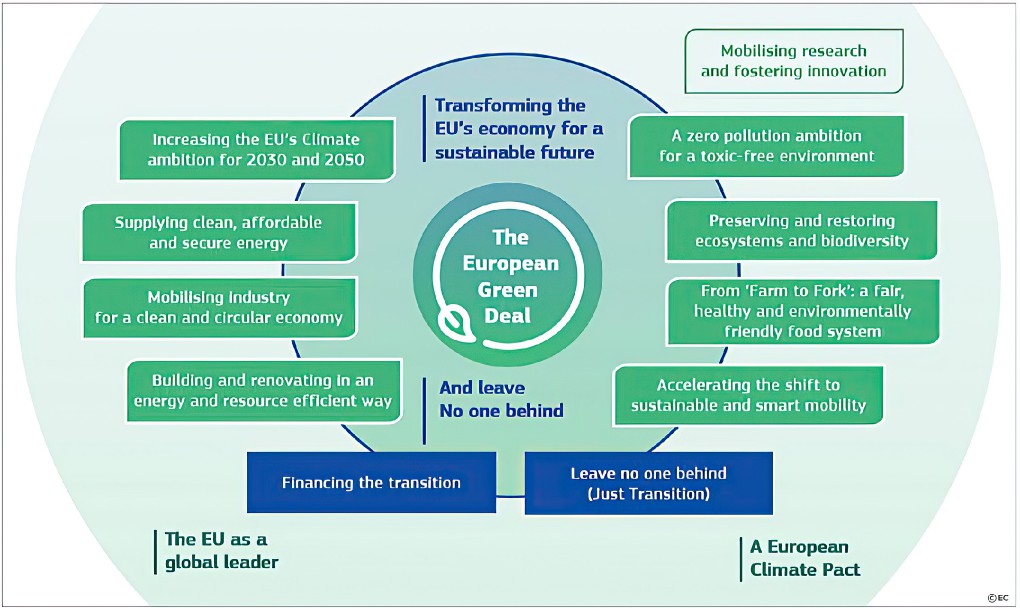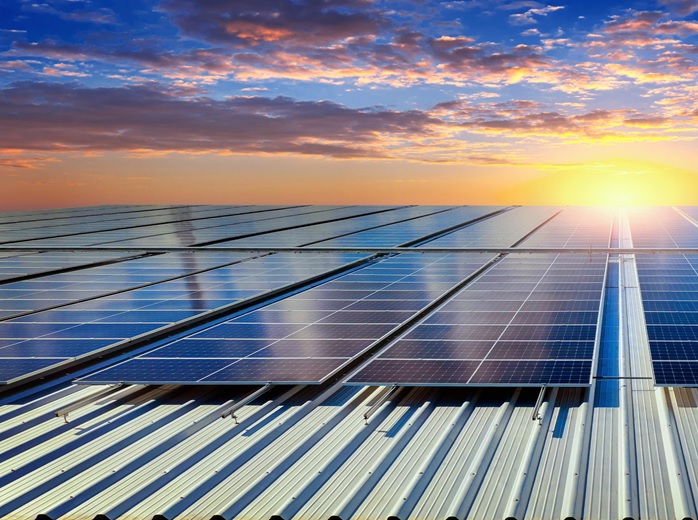- HOMEWelcome
- DIRECTORATE FOR EU AFFAIRSStructure
- E.U.Structure
- TÜRKİYE-EU RELATIONS
- History of Türkiye- EU Relations
- Main Documents
- Agreements
- Protocols
- Accession Partnership Documents
- National Programmes for the Adoption of the Acquis (NPAA)
- Türkiye Reports Prepared by the European Commission
- Enlargement Strategy Papers
- Türkiye’s National Action Plan for the EU Accession
- Türkiye’s National Action Plan for the EU Accession (2021-2023)
- Association Council Decisions
- Documents on Türkiye-EU Summits
- Institutional Structure
- Customs Union
- Türkiye- EU High Level Dialogue Meetings
- DATASources
- MEDIANews
- CONTACTContact Us
European Green Deal
The EU’s roadmap for green transition as required by the Paris Climate Agreement has been put forward with the European Green Deal (EGD). The EGD, which was announced by the President of the European Commission, Ursula von der Leyen, on 11 December 2019, is the EU's new growth strategy that aims to make Europe the world’s first climate-neutral continent by 2050, with net zero greenhouse gas emissions.
The Green Deal encompasses a set of far reaching measures in almost all economic sectors (including energy, transport, agriculture, industry etc) with the aim of fostering transition to a more competitive, resource-efficient and circular economy. Under the European Green Deal Investment Plan, the Commission intends to mobilize at least €1 trillion of sustainable investments over the 2021-2030 period, by increasing resources devoted to climate action under the EU budget and by leveraging additional public and private financing.

To date, a number of important sectoral strategies, policy changes and legislation have been adopted in accordance with the EGD on areas such as de-carbonization of energy systems, establishment of sustainable and smart transportation systems, circular economy, trade, industry, sustainable agriculture and food supply and protection of biodiversity.
Decarbonizing the energy sector, which is responsible for more than 75% of the EU's greenhouse gas emissions, is at the center of the transformation envisioned by the EGD. In line with the EGD targets, the EU aims to ensure a secure and affordable energy supply, develop a fully integrated, interconnected and digitalized EU energy market and prioritize energy efficiency especially by improving the energy performance of buildings and developing a power sector based largely on renewable sources Within this framework, a number of important sectoral strategies were launched in 2020, including the Hydrogen Strategy, the Renovation Wave Strategy, the Methane Strategy, the Offshore Renewable Energy Strategy, and the Energy Systems Integration Strategy.

The transport sector accounts for around a quarter of the EU's greenhouse gas emissions. The European Green Deal calls for a 90% reduction in greenhouse gas emissions from transport by 2050 compared to 1990 levels, in order for the EU to become a climate-neutral economy. In this context, the European Commission published "Sustainable and Smart Mobility Strategy" on 9 December 2020.

In the area of industry, the European Commission announced the Green Deal Industrial Plan on 1 February 2023 which aims to support the competitiveness of EU net zero industry on the path to climate neutrality by 2050. Green Deal Investment Plan is based on four pillars: a predictable and simplified regulatory environment, speeding up access to finance, enhancing skills, and open trade for resilient supply chains. Provisional agreement between the European Parliament and the Council has been reached on 6 February 2024 on the Net-Zero Industry Act which falls under the scope of the first pillar.
The Circular Economy Action Plan which was announced by the Commission on 11 March 2011 includes measures to promote circular economy processes, encourage sustainable consumption, and aims to ensure that resources used are kept in the EU economy for as long as possible.
Within the scope of the EGD, the Farm to Fork Strategy, and the European Biodiversity Strategy, which is closely related to the agricultural sector, were published on 20 May 2020. The Farm to Fork Strategy sets policy priorities for building a new sustainable EU food system to ensure access to sufficient supply of food at affordable prices for citizens.

